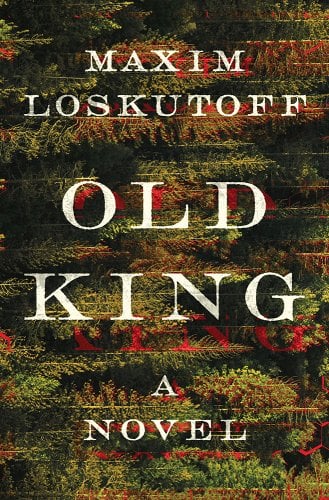
Slanting sunlight from the open door filled the single room of Ted’s cabin. He’d built the structure without windows for privacy and to keep the heat in, and it was a relief to leave the door open on warm summer evenings. Handmade shelves lined the far wall. They were full of books on plant and animal identification, as well as philosophy, mathematics, history, and a few novels by Joseph Conrad. Specimens of mushrooms, sap, and moss that Ted collected were stored in labeled glass jars. His knife lay atop a row of canned meat beside his snowshoes and a rack of dress clothes. A gun rack held a deer rifle and .22 over the bed. Beneath the bed, his coded notebooks were stacked beside a nearly completed bomb. All in their right place. Ted looked around in satisfaction, then settled down at his desk to read. He cultivated the appearance of a dirty hermit in town, but at home he kept the cabin pin-neat.
The Technological Society by Jacques Ellul lay open beside his notebook. Ted had found an unlikely compatriot in the French philosopher, and underlined long passages in each chapter. He was particularly fascinated by the idea that people had come to serve technology, rather than vice versa. It confirmed what he’d seen in computer labs at Michigan and Berkeley, and on assembly lines in Chicago: man’s utility was now based on his ability to operate and care for machines. He’d become the tool and they the master—a form of slavery too degrading to be believed. Ted returned to the passage he’d been reading the night before, attempting to formulate the opening line of an essay.
“The Industrial Revolution has been a disaster for the human race,” he wrote. Then he amended, “The Industrial Revolution and its consequences ” He set the pen down, distracted by the
warm summer air. It had been a fine day. His new detonator was working perfectly and the test blast he’d performed that afternoon was so powerful it completely eviscerated the deer carcass he’d strung up on the far side of Strawberry Ridge. He tapped his pen against the desk, trying to regain his focus. “Technology has destabilized society, made life unfulfilling, led to widespread psychological suffering, and ” He read the sentence back. “And
inflicted severe damage on the natural world.” He nodded to himself. Generally he thought of environmentalists as weak-minded fools, and he didn’t hesitate to poach animals or litter in the woods, but their movement aligned with his own. The clarity of his intellect was his greatest pride. If he was caught, his worst fear was that he’d be declared insane and dismissed as a lunatic like the serial killers who dressed up in women’s clothes.
At dusk, he returned outside and climbed the rungs of his lookout tree, a tall Doug fir in the corner of his property. He sat in the small plywood roost he’d constructed high in the branches and looked out over the valley. Hutch’s driveway lay empty. The blackened circle of the pyre in the yard was all that remained of the huskies. The road was thankfully quiet. Ted spat and watched the gob fall to the ground between the branches. To the east, Duane and his son Hudson sat on camp chairs outside Duane’s canvas army tent. Smoke drifted up from their small fire. They’d been nailing studs in the walls of the partially framed cabin all afternoon. Behind them, Ted saw the checkerboard pattern of clear-cuts on Tom McCall’s logging claims. He turned northwest to the Bob Marshall Wilderness, where great stone formations—granite peaks and cliff walls stretching to the Canadian border—rose from the pine canopy like the turrets of an ancient castle. The sight of this wilderness comforted Ted. Mountains and rocks operated on geologic time. They eased his impatience and made him meticulous in his work, and he dreamt of one day finishing and walking alone into that immensity with no intention of coming back.
Darkness spread across the valley, and lights blinked on one by one in the houses of Lincoln far below. Ted sighed, imagining the lives behind these windows. He ran the long nail of his index finger along the pattern of the bark. He thought of his brother David, the only human being for whom he maintained affection. As young men, they’d been united in their hatred of industrial society, and David shared his vision of a world reformed by fire. For a time, David had even moved to Montana to be close to Ted. But now he’d met a woman in West Texas and taken a job teaching at a local high school. His mind wasn’t as strong as Ted’s, and such a menial existence wore a person down. Ted worried that his brother had become another slave in the machine of modern society. Once, he’d fantasized about taking David on as an accomplice. Now his brother was leaving him truly alone.
It didn’t matter, he told himself. He’d always been alone. He climbed down from the tree and walked to his garden, opening the gate of the tall deer-proof fence. He knelt in the rich soil, checking the progress of his crops. He fertilized the garden with his own shit, carried on scraps of newspaper from his cabin—a practice he’d read about in a book on rural India—and a rich, fecund scent hung in the air. He pulled up several carrots for dinner.
After eating, he put on a pair of latex gloves and took the nearly completed bomb from beneath his bed. His irritation with his brother redoubled his determination. He poured soybean oil and salt into a small bowl and soaked the igniting wire to obliterate any fingerprints. When the wire dried, he soldered it in place and dabbed the first layer of his new C4 mixture beneath it. Combining the chemicals was a delicate process that took a number of days. He would slowly add more of the black powder mass, letting it dry completely each time, until the mound touched the end of the igniting wire. Then he would cover the wire itself, and over the course of more days apply layers of epoxy and paraffin. Finally, he would add the pipe and lid to seal the entire device. He suspected that improper sealing had hampered his previous efforts, and intended to add several extra layers of paraffin around the entire exterior.
As Ted prepared for bed, he ran through the additional steps he needed to take: buying a bus ticket, assembling a disguise, choosing a target. He whistled to himself as he rinsed his face in the washbasin. Choosing a target from the long list of names in his coded notebook was his favorite part of the process, and he savored it until the very end. Where to direct the package . . . who to destroy. . . . The months before he sent a device were the most focused of his life. His headaches went away. His nightmares lessened. His stress and anger were assuaged by the prospect of direct action, and his previous failures diminished in magnitude as he imagined his imminent success. He was sure that this bomb would finally accomplish the goal he’d pursued for more than a decade: it would take a human life.
__________________________________
Excerpted from Old King by Maxim Loskutoff with the permission of Maxim Loskutoff. Copyright © 2024 by Maxim Loskutoff.


